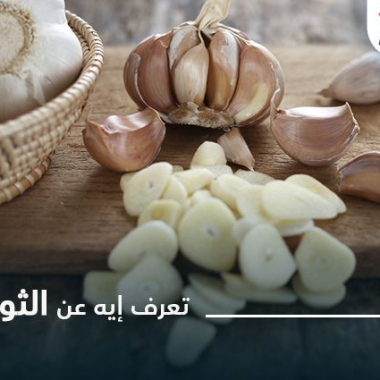Tips for healthy Ramadan fasting To Lose Wieght:
When it comes to weight loss, following tips for healthy ramdan fasting is the most effective method available. An easy-to-follow weight-loss plan for Ramadan has been provided for you in this article.
Weight gain is inevitable in Ramdan if you did not follow a healthy lifestyle because of the plenty of tastey deserts like konafa and katayf. For the rest of Ramadan, the diet rule is necessary to save what can be salvaged.
We can start our tips To Lose Wieghtfor the Ramadan during the fasting time:
- Never eat directly during Maghreb prayer To Lose Wieght!
To break your fasting with water and no more than three bites of food is fine in Ramadan, it’s better for your body if you take some time off and use it for prayer, for example, to help your body prepare for the long fasting period and move on from it. As a result, your body will consume the quantity of food it needs without going overboard, and you’ll be shocked to discover that you were already feeling full before you ate the customary amount.
-
Avoid fried foods To Lose Wieght.
Dishes high in fat and calories, such as fried foods, are a major contributor to weight gain during Ramadan. Your Ramadan slimming system has a wide variety of healthy alternatives to the fried foods that are a staple of Ramadan.
-
You need to cut back on sugar To Lose Wieght.
During Ramadan, it’s common for people to eat sugary drinks and desserts, but it’s best to avoid sugary drinks and desserts and stick to natural sugars like fruit, dates, dried fruits, honey, and molasses instead, as these are the only natural sugars that your body needs during this time of year, and they’ll help you avoid gaining weight during Ramadan.
-
Drink enough amount of water To Lose Wieght .
Ramadan weight loss requires hydration, which may seem unattainable given the length of the fast. However, drinking adequate fluids throughout the day will keep you from being dehydrated during fasting, as well as curbing your appetite for sweets after breakfast.
In order to stay hydrated, your body need 2 litres of fluid every day, which is around eight cups. You can divide this amount as:
- Drink two cups during Iftar.
- 4 cups during the period between Iftar and Suhur.
- The Suhur should contain two glasses of water.
Coffee and red tea are diuretic beverages, so they should be avoided throughout Ramadan, as should any caffeinated beverage, for the sake of your health.
Herbal tea is a great alternative as it is considered as refreshing beverage, and may also aid digestion.
- Soup is a great way to start a meal.
Start your meal with a modest portion of soup, such as vegetable soup or lentil soup, after you’ve consumed dates and water. Steer clear of cream-based soups.
Suhoor is essential for Ramadan slimming:
The Suhur is not to be missed!
Ramadan slimming regime somtimes is overestimated by some people, and they decide to skip their Suhoor meal.
When it comes to Ramadan, it’s best not to skip the meal of Suhur because it can lead to overeating at Iftar, which can sabotage your weight loss efforts. On the religious side, the meal of Suhur is Sunna, Barakah and health.
You can add ingredients to your Suhur meal which help to feel full or at least not tired and hungry during the fasting period; because this feeling may prompt you to eat a lot of food at Iftar, in addition to the fact that this habit will earn you a fair number of kilos during Ramadan, it will also lead to numerous digestive problems.
- Avoiding dessert during Suhur is an effective strategy to shed pounds.
A few hours after fasting begins, sweets or sugars assist increase the rate of hunger because they induce a big surge in blood sugar, which causes the body to feel hungry and desire more food.
- Reduce the amount of salt and spices in your food.
As a result of the Suhur meal’s frequent usage of spices and salt, the fasting period becomes more dehydrating.
- Consume a healthy diet that includes plenty of fruits and vegetables.
Make sure that your suhur to include enough of vegetables and fruit. These foods are high in fibre and can help you feel full for longer, while also supporting gut health and digestion.
- Complex carbs are a good.
This combination comprises complex carbs, such as whole wheat bread, barley, quinoa; potatoes, corn; and legumes like black beans; chickpeas; and lentils and others; helps to feel full for as long as possible, requiring a lengthy digestive process.
- Add some protein.
It is vital to eat a variety of proteins in the Suhur meal since they take longer to digest, which helps to keep you feeling full for as long as possible during daylight hours.
Chickpeas, milk, cheese, yoghurt, and eggs are all good sources of protein.
General tips for a healthy Ramdan To Lose Wieght :
- Some exercises are good for losing weight during Ramadan.
Stay active as much as possible to lose wieght but avoid the sun and heat when it’s at its hottest during Ramadan, which is the holy month of fasting for Muslims.
Do 30 minutes of physical activity every day, and you can do it at home.
- Don not eat to much To Lose Wieght.
In order to get the health benefits of fasting, avoid overeating at Iftar on the pretence that you’ve been hungry and depleted all day long.
- Get plenty of rest.
Yes, you read that correctly: Make sure you get at least eight hours of sleep every night to help you lose weight and stay healthy.
Is it permissible to do keto diet during the holy month of Ramadan?
It is common for some food groups to be eliminated from ketogenic diets, such as carbs. But this should not be your choice if you want to be healthy as well as lose weight!
Whether or not it’s Ramadan, the key is to establish a balance between consuming a variety of foods in moderation and avoiding overindulgence, unless there’s a compelling reason to do otherwise.
In the end, Ramadan is a great opportunity for those who are committed to a Ramadan diet of good foods and healthy eating habits, but only if they are willing to make the effort. Patients with high blood pressure and diabetes can follow the same Ramadan healthy instructions as those who do not have these conditions.














